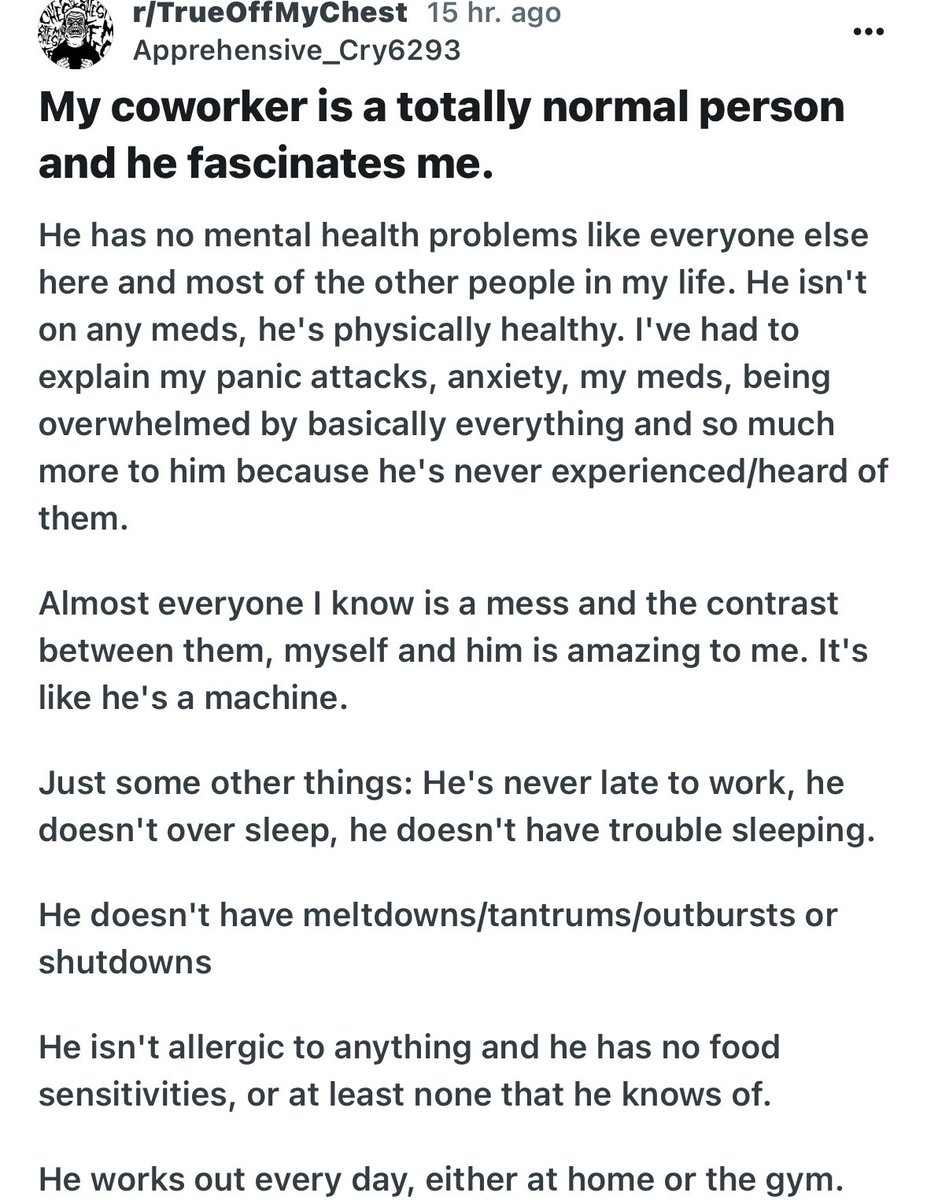this post was submitted on 07 Oct 2024
522 points (94.8% liked)
Facepalm
2641 readers
1 users here now
founded 1 year ago
MODERATORS
you are viewing a single comment's thread
view the rest of the comments
view the rest of the comments

Much of that is just life though. I've always wondered if this misunderstanding is one of the fundamental sources of many people's anxiety.
For some reason most people assume the "good times" are the default and the "traumatic event" is the outlier. I don't believe that is the case.
The "traumatic event" is the default, the "good times" are the outlier.
So when a traumatic event happens the question isn't "Why did this happen to me?" but rather the statement "That was a really great run of temporary 'good times', now lets deal with this event".
Thats when having money comes in. Many years ago a family member gave me a saged piece of advice when I was young "If you have a problem that can be solved by money, and you have money, you don't have a problem". A flat tire, for many, can be a traumatic event listed above. It can mean finding money you don't have for a new tire, loss of income from missing work, impacts to your family from not being able to pick up your kid from school/daycare, or loss of advancement at work from being considered "unreliably" and being passed over for promotion. Those can all trigger the consequences of "traumatic event". However, if you have a couple hundred bucks unallocated to your name you can immediately lay your hands on and spend, a flat tire isn't a problem, its a mild annoyance.
So having money doesn't remove the "canon-balling between traumatic event to traumatic event", but it removes many events that would otherwise be traumatic leaving you with less trauma overall, and keeping your capacity to deal with the trauma mostly in check with the understanding that life will always give you more as time passes. This also makes you very much appreciate the outlier "good times" when you're experiencing them, because you know they will end.
When you said trauma wasn't a big deal and we should get used to it, drag thought you were being unreasonably flippant. But then drag read that you think of a flat tire as a good example of a traumatic event, and it suddenly made sense to drag. You think trauma isn't a big deal because you've had an easy life with mild traumas.
Not sure what post you read that in, but it wasn't mine.
Nope, didn't say that either.
That’s not what they said.
They were giving an example about how having enough money or not having enough money meaning something ‘mild’ (flat tire) can either be a minor problem (having enough money that buying a new tire and missing a bit of work while the car gets taken to the shop isn’t a problem) or a major issue causing lots of trauma via a lot of ‘smaller’ problems that stack (having to come up with spare money you don’t have to buy a new tire, missing work so your paycheck is too small to support you, unable to get to your kid in time after school, getting in trouble at work for the time you were gone dealing with the tire issue, etc).